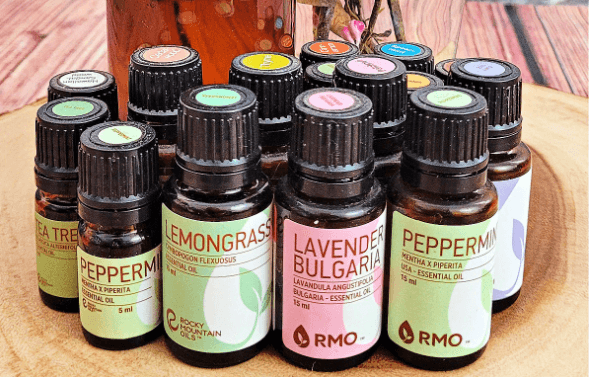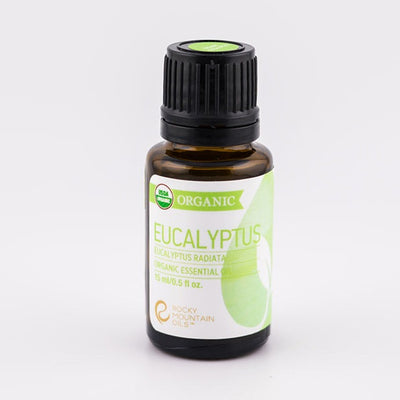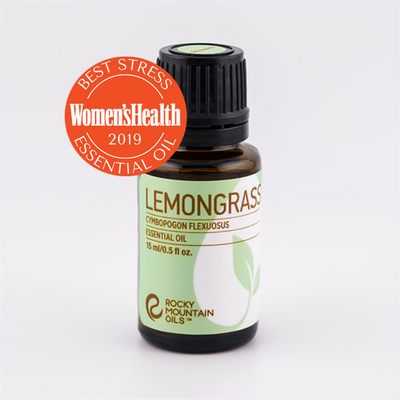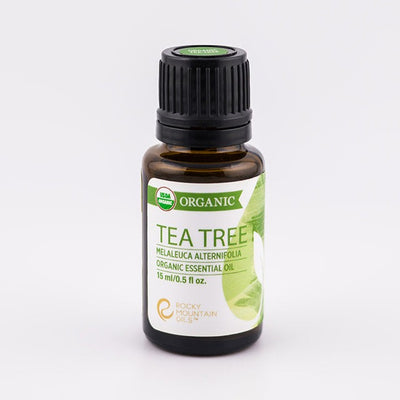What Essential Oils Get Rid of Flies? Discover 5 Effective Natural Solutions
Flies are more than just a nuisance; they're a persistent problem in many households. However, the solution might lie in nature's bounty: essential oils. This article delves into how particular essential oils can be helpful in getting rid of flies, offering a natural and safe alternative to chemical repellents.
The Science Behind Essential Oils and Insect Repellence
Composition of Essential Oils That Deter Flies
Essential oils are highly concentrated extracts emanating from plants that preserve the natural scent and essence of the source plant. Some of these oils contain specific compounds, like citronellal found in lemongrass or eucalyptol in eucalyptus, which can deter insects, including flies. These compounds function by either masking the odors that attract flies or by directly driving them away with their solid and aromatic fragrance.
How Essential Oils Disrupt Insect Behavior
The potent scents of essential oils disrupt the olfactory senses of flies, confusing them and deterring their approach. This natural defense mechanism of plants against insect pests is what makes essential oils an effective tool in our fight against flies.

Top Essential Oils for Repelling Flies
Lavender Oil: A Soothing Repellent
Lavender oil is well-known for its soothing properties, but it also proves to be a strong adversary against flies. Its sweet aroma, which humans find pleasant, serves as a deterrent for flies.
Eucalyptus Oil: Nature's Insect Deterrent
Eucalyptus oil is another powerful essential oil for repelling flies. Its robust and camphor-like aroma is highly effective in keeping flies at bay.
Peppermint Oil: A Dual-Purpose Natural Remedy
Not only does peppermint oil have a refreshing scent, but it's also highly effective against flies. Its strong menthol smell is unappealing to these pests.
Lemongrass Oil: The Citrusy Shield
Lemongrass oil, with its strong citrus scent, is a natural and potent repellent for flies. It contains citral and geraniol, both of which are known to repel insects.
Tea Tree Oil: The Potent Protector
Tea tree oil, known for its antiseptic properties, is also a strong deterrent against flies. Its strong smell is off-putting to many insects, including flies.
Application Methods for Essential Oils
Dilution and Safety Precautions
Properly diluting essential oils is crucial before using them, as they are highly concentrated. Utilizing a carrier oil such as almond or coconut oil can assist in safely applying these oils in various locations around the home.
Direct Application: Sprays and Wipes
Creating a homemade fly-repellent spray is simple. Just mix a few drops of your desired essential oil with water and spray it around the home, especially near windows and doors.
Passive Dispersion: Diffusers and Potpourri
Using an essential oil diffuser or creating a potpourri with essential oils can passively disperse the scent throughout your home, keeping flies away.
DIY Essential Oil Blends for Fly Control
Creating a Customized Fly-Repellent Blend
You can create your blend of essential oils for a more effective fly repellent. Combining oils like lavender and peppermint can offer a pleasant scent for your home while keeping flies away.
Recipes for Home and Outdoor Use
A simple recipe for a fly repellent could be mixing ten drops of eucalyptus oil, ten drops of lavender oil, and a cup of water in a spray bottle. This can be used both indoors and outdoors.
Understanding Essential Oils' Limitations
When to Use Essential Oils for Flies
While essential oils are effective against flies, they work best in enclosed spaces and need to be reapplied periodically for continued effectiveness.
Precautions and Effective Limits
It's important to note that essential oils are not a one-stop solution for severe fly infestations. In such cases, more comprehensive pest control methods may be required.
Essential Oils vs. Conventional Fly Repellents
Comparing Efficacy and Safety
Compared to conventional fly repellents, which often contain chemicals, essential oils offer a safer, more natural alternative. However, their effectiveness can change based on the type and concentration of the oil used.
The Environmental Impact of Essential Oils
Using essential oils as fly repellents is not only safe for humans but also better for the environment. They are biodegradable and do not contribute to pollution.

Integrating Essential Oils into Daily Life
Essential Oils in Home Cleaning
Integrating essential oils into your cleaning routine not only leaves your home with a fresh scent but also aids in repelling flies. Adding a few drops to your floor cleaner can be a straightforward yet efficient method to achieve this.
Personal Care Products with Fly Repellent Properties
Some personal care products, like body lotions or soaps, can be infused with essential oils like citronella or lemongrass, which can help in repelling flies.
Children, Pets, and Essential Oil Safety
Safe Usage Around Vulnerable Populations
When using essential oils around children and pets, it's necessary to ensure that the oils used are safe and appropriately diluted.
Avoiding Toxicity in Animals
Certain essential oils can be toxic to pets, especially cats and dogs. It's important to research and use pet-safe oils if you have furry friends in your home.
Buying Guide for Essential Oils
Quality Indicators for Effective Oils
When purchasing essential oils, look for purity indicators like "100% essential oil" and avoid oils with additives or synthetic ingredients.
Sustainable and Ethical Sourcing
Opting for essential oils from brands that practice sustainable and ethical sourcing can ensure that you're using a product that's not only effective but also environmentally responsible.
User Experiences and Testimonials
Real-Life Applications and Outcomes
Many users have found success in using essential oils as a natural fly repellent. Testimonials often highlight the effectiveness of oils like lavender and peppermint in keeping flies at bay.
Success Stories in Fly Control
From small apartments to expansive outdoor spaces, essential oils have demonstrated their versatility and effectiveness as a solution for fly control in a wide range of settings.
What essential oils keep flies away?
Several essential oils can effectively keep flies away due to their strong, repelling scents. Some of the most commonly used essential oils for this purpose include peppermint oil, citronella oil, eucalyptus oil, and lavender oil. Peppermint oil emits a refreshing and minty fragrance that flies find unpleasant, while citronella oil is well-known for its ability to repel insects, including flies, with its lemony scent. Eucalyptus oil has a strong, camphor-like aroma that flies tend to avoid, and lavender oil's sweet and floral scent can deter them as well.
To create a natural fly repellent, you can mix a few drops of these essential oils with water in a spray bottle and apply it to areas where flies are a problem, helping to keep them at bay without resorting to chemical insecticides.

How do you make essential oil spray to repel flies?
To make an essential oil spray to repel flies, you'll need a few simple ingredients. Start by filling a spray bottle with distilled water, leaving some room at the top for the other ingredients. Next, add about 10-15 drops of essential oils known for their fly-repelling properties, such as lavender, eucalyptus, peppermint, or citronella.
You can use a single oil or a combination of these oils for a more potent effect. Once the oils are added, close the spray bottle and shake it well to mix the ingredients thoroughly. To use, simply spray the solution in areas where flies tend to gather, like around windows, doors, or outdoor seating areas. Reapply as needed, and enjoy a natural and pleasant way to keep flies at bay without the use of harmful chemicals.
Does peppermint oil get rid of flies?
Peppermint oil is known for its strong and pleasant scent, which can act as a natural repellent for flies. When used in a concentrated form or mixed with water and sprayed in areas where flies are a nuisance, peppermint oil can help deter these pesky insects. Its aromatic properties are believed to confuse and repel flies, making it less likely for them to linger in treated areas. However, it's important to note that while peppermint oil can be an effective natural solution to help keep flies at bay, it may not completely eliminate a fly infestation on its own. Combining peppermint oil with other fly control methods, such as proper sanitation and the use of fly traps, can yield better results in managing fly problems.
Frequently Asked Questions (FAQs)
Which essential oils are best for repelling flies?
Lavender, eucalyptus, peppermint, lemongrass, and tea tree oils are highly effective in repelling flies due to their intense aromas that fly find unappealing.
How often should I reapply essential oil repellents?
Essential oil repellents typically need reapplication every few hours, as their scent diminishes over time, reducing their effectiveness against flies.
Can essential oils be used safely around children and pets?
Yes, most essential oils can be used safely around children and pets when properly diluted; however, it's necessary to check for any specific oil sensitivities or toxicities, especially in pets.
Are essential oils effective against all types of flies?
Essential oils are generally effective against common houseflies and fruit flies, but their effectiveness can vary with different fly species and infestation levels.
How do I properly dilute essential oils for use as a repellent?
To ensure safe and practical application, essential oils should be diluted with carrier oil or water, usually by using a few drops of essential oil per ounce of carrier liquid.
Can I use any essential oil diffuser for dispersing fly-repellent oils?
Most types of essential oil diffusers can be used for dispersing fly-repellent oils as long as they effectively distribute the oil's aroma throughout the area.
Conclusion
Exploring the benefits of essential oils for addressing common issues such as fly control not only promotes a safer environment but also fosters a healthier lifestyle. By understanding what essential oils get rid of flies and harnessing their potential, we can effectively address fly-related concerns in our households.




